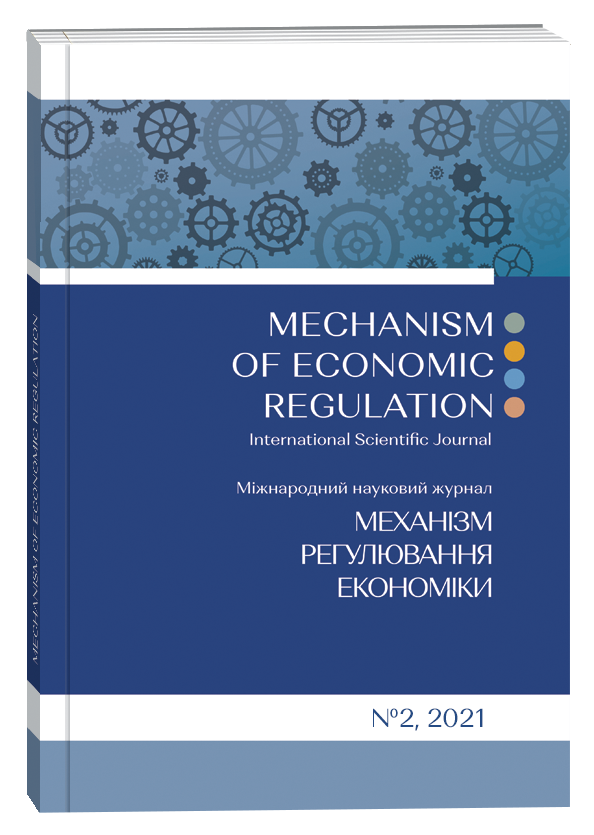ЕФЕКТИВНІСТЬ МІСЦЕВИХ ПОДАТКІВ В КОНТЕКСТІ СОЦІАЛЬНО ЕКОНОМІЧНОГО РОЗВИТКУ РЕГІОНІВ
Анотація
Розвиток регіонів є одним із пріоритетних напрямків державної регіональної політики, метою якого є створення належних умов для динамічного, збалансованого соціально-економічного розвитку України та регіонів, підвищення рівня життя, забезпечення дотримання гарантованого державою соціального захисту кожного громадянина та усунення основних регіональних диспропорцій. Вплив збільшення фінансової автономії органів місцевого самоврядування в першу чергу залежить від їх фінансового забезпечення. Одним з основних джерел місцевих доходів є місцеві податки та збори, що підвищують ефективність використання бюджетних інструментів для соціально-економічного розвитку адміністративних одиниць. Основний внесок дослідження полягає у тестуванні гіпотези існуючих процесів взаємозв’язку між місцевими податками та показниками регіонального розвитку на основі панельного аналізу даних для всіх регіонів України з використанням регресійної моделі в Stata SE та MS Excel. Період дослідження включає 2018–2020 рр. Вибірка даних включає показники надходження місцевих податків, а також індикатори регіонального розвитку. Для обґрунтування ролі місцевих податків у регіональному розвитку було визначено ряд гіпотез щодо взаємозв’язків між надходженнями місцевих податків та динамікою регіонального розвитку. В процесі розрахунків було створено 18 рівнянь регресії (панельна регресія за методом найменших квадратів), які дозволяють оцінити вплив місцевих податків на загальні показники регіонального розвитку. Розрахунки засвідчили, що місцеві податки мають статистично значимий позитивний вплив на забезпечення зростання індикаторів регіонального соціального та економічного розвитку. Це створює підґрунтя для посилення фінансової спроможності місцевих бюджетів у результаті вдосконалення системи місцевих податків.
Посилання
Budget Code of Ukraine. Retrieved from: https://zakon.rada.gov.ua/laws/show/2456-17#Text
Grynchyshyn, I. M. (2018). Napriamy pidvyshcshennia efectyvnosti vykorystannia biudgetnyh koshtiv na sotsialnyi zahyst v Ukraini: regionalnyi ta mistsevyi vymiry [Directions of increasing the efficiency of budgetary expenditures for social security in Ukraine: regional and local context]. Regionalna Economica, 4, 94-102. Retrieved from: http://nbuv.gov.ua/UJRN/regek_2018_4_12
Kubai, T. Ye. (2015). Mistseve samovryadvannya yak instytut demokratychnogo suspilstva: upravlinsko-pravovyi aspect [Local government as the Institute of democratic society: administrative and legal aspect]. Efectyvnist derzhavnoho upravlinnia, 42, 266–273. Retrieved from: http://nbuv.gov.ua/UJRN/efdu_2015_42_32
Martyniuk, I. & Bohatyrova, Y. (2019). Mistseve opodatkuvannia v Ukraini: suchasnyi stan ta perspectyvy rozvytku [Local taxation in Ukraine: current state and development prospects]. Ekonomika ta derzhava, 6, 27–31.
Ministry of Development of Communities and Territories of Ukraine. Retrieved from: https://www.minregion.gov.ua
Open Budget. Retrieved from: https://openbudget.gov.ua
Prots, N. V. (2016). Sutnist ta fiskalna rol mistsevyh podatkiv ta zboriv v umovah reformuvannia biudzhetnoho ta podatkovoho zakonodavstva [The essence and fiscal role of local taxes and fees in the context of reforming fiscal and tax legislation]. Global and national problems of the economy, 13, 536-541. Retrieved from: http://global-national.in.ua/archive/13-2016/108.pdf
State Statistics Service of Ukraine. Retrieved from: http://www.ukrstat.gov.ua


